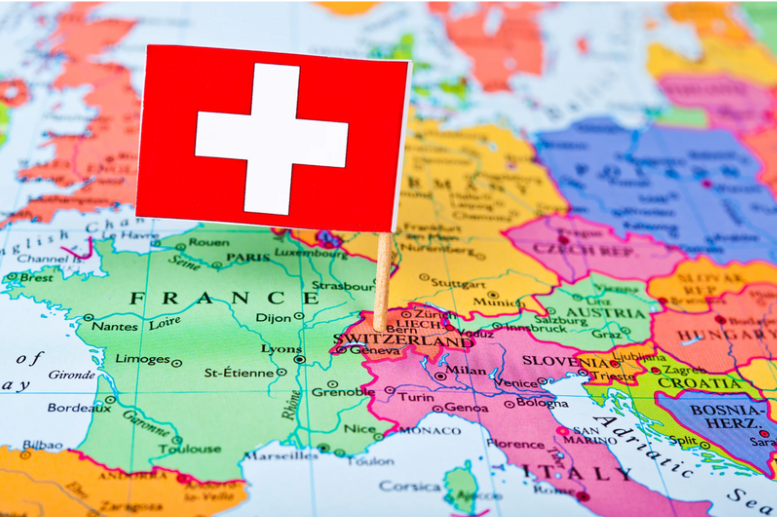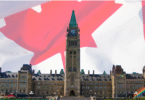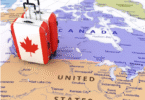Have you been dreaming of taking a trip to Switzerland? Maybe for a vacation, a business meeting, or just to visit a friend, one thing is sure, you’ll need a Swiss Schengen Visa if you’re not from a Schengen country.
Now, don’t let the word “visa” scare you. It might sound like a long, complicated process, but it’s not as hard as it seems. With the right information and preparation, you can get your Swiss Schengen Visa without stress.
In this article, I’ll walk you through everything you need to know about applying for a Swiss Schengen Visa. We’ll cover what it is, who needs it, the documents you need, the step-by-step process, helpful tips, and even answers to some common questions.
Keep reading!
What is a Swiss Schengen Visa?
A Swiss Schengen Visa is a short-stay visa that allows you to travel to Switzerland and other countries in the Schengen Area for up to 90 days within a 180-day period. It’s often called a Type C visa, and it’s perfect for people who want to visit Switzerland for a short time.
This visa is meant for:
- Tourists coming to explore Switzerland’s cities, nature, or landmarks
- People visiting family or friends
- Attending business meetings or conferences
- Getting medical treatment
- Or joining a short course or training
The good thing about the Schengen Visa is that it’s not just for Switzerland. Once you enter Switzerland, you can also travel to other Schengen countries like France, Germany, Italy, Austria, and many more without needing separate visas for each one.
However, you must apply through Switzerland if it’s your main destination—meaning you will either spend the most time there or it’s your first point of entry into the Schengen zone.
Who Needs a Swiss Schengen Visa?
Not everyone needs a visa to enter Switzerland. It depends on your nationality and passport. Let’s break it down simply:
You do NOT need a Swiss Schengen Visa if:
- You are from a Schengen country (like France, Germany, Italy, etc.)
- You are from a country with a visa-free agreement with the Schengen Area (like the USA, UK, Canada, Australia, Japan, South Korea, and a few others)
- You have a valid Schengen visa from another country and Switzerland is not your main destination
If you fall into any of these groups, you can travel to Switzerland for up to 90 days without a visa.
You DO need a Swiss Schengen Visa if:
- You are from a country that does not have a visa-free deal with the Schengen Area (for example: India, Pakistan, Ghana, Bangladesh, Nigeria, Kenya, Egypt, and many more)
- You plan to stay in Switzerland for more than 90 days (In this case, you will need a long-stay visa, not a Schengen visa)
- You are not a citizen of the country where you’re currently living and you don’t have a residence permit
How to Check if You Need a Visa
- Visit the Schengen Visa Info website or the official Swiss embassy website in your country.
- You will see a section that says “I am a citizen of” and “I am travelling to”. Fill it in as it applies to you and click “Next Step”
- If you will be needing a visa, it’ll show you where to submit your Schengen visa application on your country’s website.
Types of Swiss Schengen Visas
Before you apply, it’s important to know which type of visa suits your purpose of travel. Even though it’s called a “Swiss Schengen Visa,” there are different categories under it, based on your reason for visiting.
1. Tourist Visa
This is the most common type. You need this if you’re:
- Visiting Switzerland for sightseeing
- Exploring nature, cities, or mountains
- Enjoying a holiday or vacation
2. Visit Visa (Family or Friends)
This visa is for people who are:
- Visiting relatives or friends living in Switzerland
- Staying with hosts instead of in a hotel
You’ll need an invitation letter from the person you’re visiting.
3. Business Visa
Apply for this if you’re:
- Attending business meetings
- Joining conferences, seminars, or trade fairs
- Visiting a company in Switzerland
You’ll need a letter from the Swiss business partner or event organizers.
4. Medical Visa
This is for those who are:
- Going to Switzerland for medical treatment
You must show proof of your appointment, diagnosis, and medical costs.
5. Short Study or Training Visa
Use this if you’re:
- Attending a short course, training, or workshop
- Taking part in academic or professional programs under 90 days
Requirements for Swiss Schengen Visa
To apply for a Swiss Schengen Visa, you’ll need to prepare some documents and they include:
-
Visa Application Form
- Fill the Schengen Visa application form completely.
- You can fill it online and print it, or fill it by hand.
- Make sure you sign it before submission.
-
Passport
- Must be valid for at least 3 months after your planned return date.
- Must have at least 2 blank pages.
- Should not be older than 10 years.
3. Recent Passport-Sized Photos
- Usually, two color photos are required.
- Must have a white background, no glasses, and no hat (unless for religious reasons).
4. Cover Letter
- A simple letter explaining why you want to visit Switzerland.
- Include travel dates, places you plan to visit, and how you will pay for your trip.
5. Flight Reservation or Travel Itinerary
- You don’t have to book a real flight yet.
- Just show a reservation that confirms your entry and exit dates.
6. Proof of Accommodation
- Hotel bookings or an invitation letter from the person you’re staying with.
- Include their address and contact details.
7. Travel Insurance
- Must cover at least €30,000 in medical expenses.
- Must be valid in all Schengen countries.
- Must cover the entire period of your stay.
8. Proof of Financial Means
You need to show that you can afford the trip. This can be:
- Bank statements from the last 3–6 months
- Payslips (if employed)
- Sponsor letter (if someone else is paying)
9. Proof of Employment or School
Depending on your situation:
- Employees: Letter from your company confirming your job and leave
- Self-employed: Business registration and tax returns
- Students: Letter from your school or university
10. Visa Fee
- The standard fee is €80 for adults and €40 for children (6–12 years).
- Children under 6 are usually free.
- Fees must be paid at the embassy or visa center, depending on your country.
Extra Documents (if needed):
- Invitation letter (for visit or business visa)
- Medical documents (for medical visa)
- Letter of enrollment (for short courses or training)
Always bring both originals and photocopies of your documents. Some embassies may also ask for extra paperwork, so check the specific requirements of the Swiss embassy in your country before your appointment.
How to Apply for a Swiss Schengen Visa
This is where everything comes together. It might look like a lot, but if you follow these steps one by one, the whole process becomes easy to manage.
Step 1: Know Where to Apply
Depending on your country, you will apply at one of these places:
- The Swiss Embassy or Consulate
- A visa application center like VFS Global or TLScontact, working for Switzerland
- In some cases, another Schengen country’s embassy handles visas for Switzerland (check the official Swiss embassy website in your country)
Step 2: Book an Appointment
- Most embassies and centers require an appointment.
- You can book it online through the embassy website or the visa center’s site.
- Choose a date that gives you enough time—apply at least 15 days before your trip, and no earlier than 6 months in advance.
Step 3: Fill the Visa Application Form
- You can fill the Schengen Visa form online or download and fill manually.
- Double-check every detail: name, passport number, travel dates, etc.
- Print and sign it.
Step 4: Gather All Required Documents
Now that you know what you need (from the last section), collect and organize:
- Application form
- Passport
- Passport photos
- Travel insurance
- Flight reservation
- Hotel booking
- Financial documents
- Cover letter
- Employment/school documents
Step 5: Attend the Appointment
On the day of your appointment:
- Arrive early and dress neatly
- Submit your documents
- Pay the visa fee
- Give your biometric data (fingerprints and photo)
- You may be asked a few simple questions like:
- Why are you going to Switzerland?
- Who is sponsoring your trip?
- How long will you stay?
Step 6: Wait for Processing
- Visa processing usually takes 15 calendar days
- It may take longer (up to 45 days) in some cases, especially during busy seasons or if extra documents are needed
You can track your application online using the tracking number provided after submission.
Step 7: Collect Your Passport
Once your visa is approved:
- You’ll receive a notification by email, SMS, or phone call
- Pick up your passport from the visa center or embassy
- If you chose courier service, it will be delivered to your address
Check your visa sticker carefully for:
- Start and end dates
- Number of entries (Single, Double, or Multiple)
- Purpose (Tourism, Business, etc.)
Tips to Make Your Swiss Schengen Visa Application Successful
Applying for a visa can feel a bit stressful, but if you plan smartly and pay attention to detail, you can improve your chances a lot.
- Start Early and Be Organized (At least 15 days before your trip)
- Complete Your Application Carefully
- Be Honest and Clear in Your Cover Letter
- Show Strong Proof of Ties to Your Home Country (Job letters, property ownership, family commitments)
- Provide Complete and Genuine Documents
- Prepare for Your Interview
- Use a Visa Application Center If Available (like the VFS Global or TLScontact)
- Track Your Application
- Check Your Visa Carefully After Approval
- Keep Copies of Everything
Following these tips will give you a clear edge in your application and make the whole process easier.
Frequently Asked Questions (FAQs)
1: Can I visit other countries with a Swiss Schengen Visa?
Yes, you can visit any of the 27 Schengen countries. But your main destination (or longest stay) must be Switzerland.
2: How early should I apply?
You can apply up to 6 months before your trip. But try to apply at least 4 weeks early.
3: Do I need to buy flight tickets before applying?
No. Just submit a reservation. You don’t need to buy until your visa is approved.
4: Can I apply for the visa online?
You can fill out the form online, but you must go to the embassy or visa center for biometrics.
5: How much money should I have in my bank account?
There is no fixed amount, but it’s good to have at least €60–€100 for each day of your stay.
6: Will I get a refund if my visa is rejected?
No. Visa fees are non-refundable.
7: Can I work with a Swiss Schengen Visa?
No. This visa is for short visits only. You can’t take up paid work.
8: Can I extend my Schengen visa while in Switzerland?
It’s very difficult. Extensions are rare and only allowed in emergency cases.
Conclusion
Applying for a Swiss Schengen Visa may seem tricky at first, but with the right information and careful preparation, it becomes much easier. Remember to gather all the required documents, fill out your application honestly, and give yourself plenty of time to apply. Following the step-by-step process and tips shared here will increase your chances of a smooth and successful visa application.
Don’t forget, the Swiss Schengen Visa opens the door not just to Switzerland, but to many beautiful countries in Europe.
Safe travels and best of luck with your Swiss Schengen Visa application!






